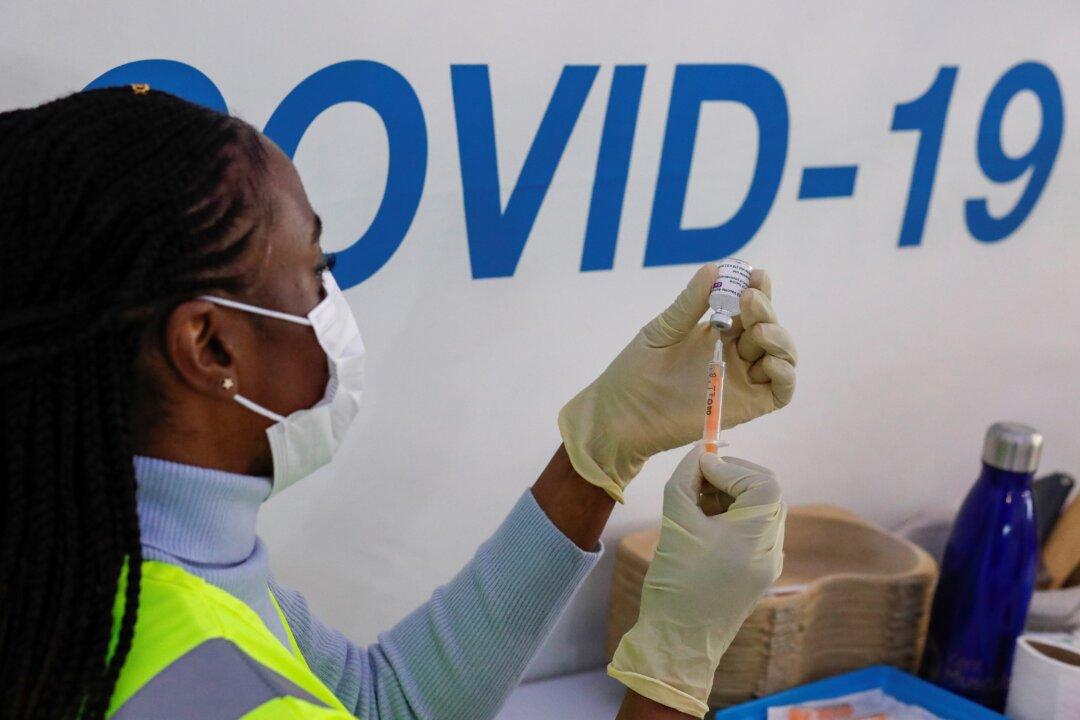LONDON—British enthusiasm for the AstraZeneca COVID-19 vaccine has faded in the past month, reflecting rising unease about its possible links to rare adverse side effects, though overall UK confidence in vaccines is high, an updated survey has found.
The survey of almost 5,000 people showed a significant increase in the proportion who said they want to be vaccinated against COVID-19 as soon as possible, but also found that almost a quarter of those asked now believe the AstraZeneca vaccine causes blood clots—up from 13 percent last month.





